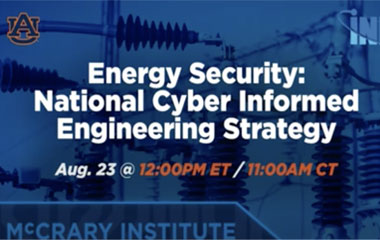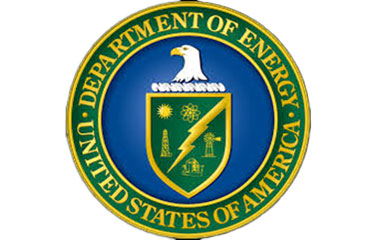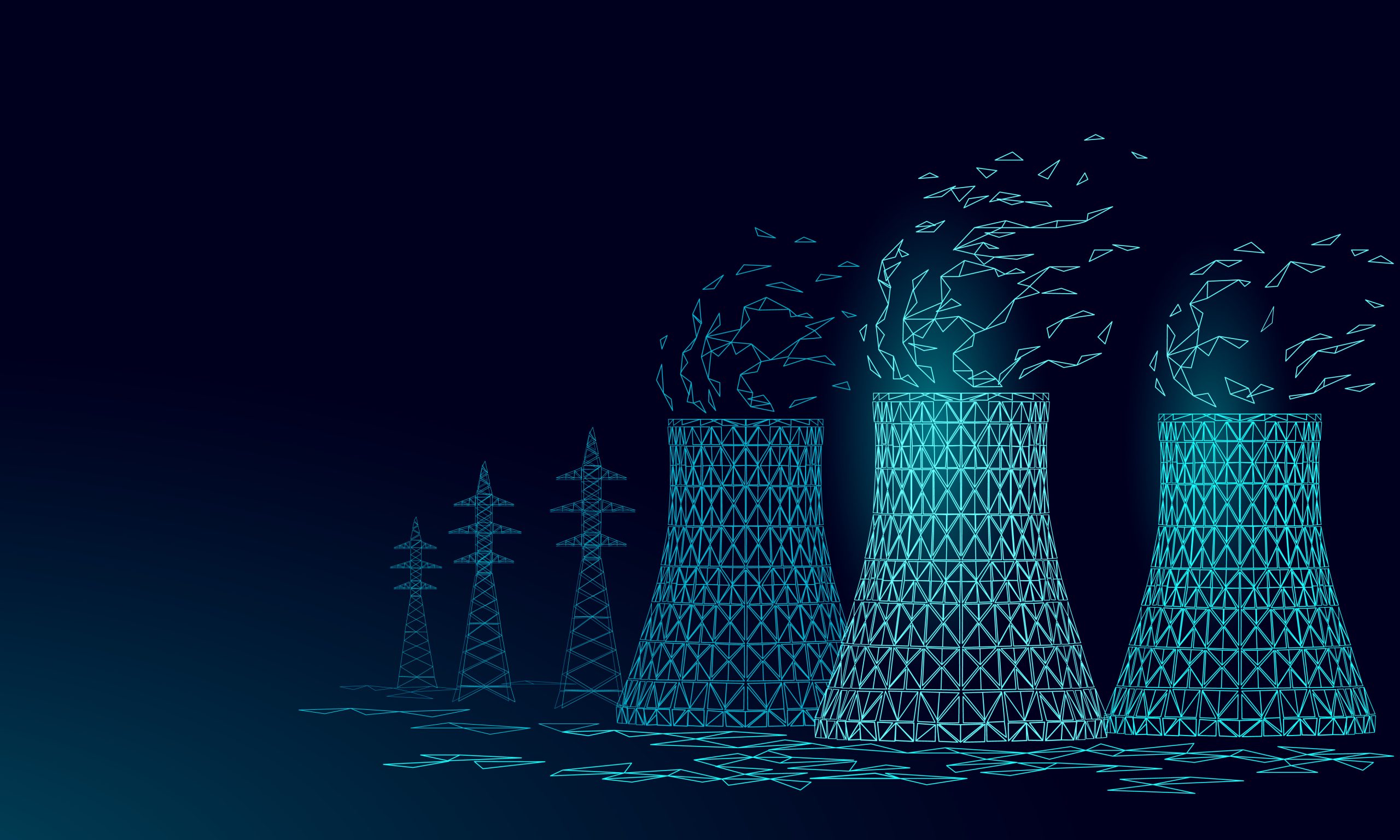Cyber-Informed Engineering
Managing cyber risk from concept to operation
Cyber-Informed Engineering (CIE) builds tools for high-level implementation into curriculum, design standards, certification and curriculum accreditation.
CIE deepens the cybersecurity protections for critical infrastructure by providing guidance to allow defenses from cyber attack to be engineered in from the early design lifecycle of infrastructure systems. It provides additional mechanisms to mitigate the worst consequences of cyber-attack and leverages digitally-based defenses prioritized by the consequences of cyber attack to the process and infrastructure of the critical infrastructure asset owner. CIE provides a framework for a change in philosophy and engineering practices for system design to proactively secure existing infrastructure and build novel future technology designed to withstand the modern and future cyber-adversary.
The DOE Office for Office of Cybersecurity, Energy Security, and Emergency Response (CESER) sponsors INL CIE initiatives and coordinates the CIE program that includes Idaho National Laboratory (INL); the National Renewable Energy Laboratory (NREL), and industry, academic, and other partners in support of the Department of Energy’s National Cyber-Informed Engineering Strategy, and the National Cybersecurity Strategy.
Implementing the Cyber-Informed Engineering Strategy
CIE Resource Library
CIE Implementation Guide
National Cyber-Informed Engineering Strategy
The U.S. Department of Energy’s National CIE Strategy seeks to guide energy sector efforts to incorporate cybersecurity practices into the design life cycle of engineered systems to reduce cyber risk.
National Cybersecurity Strategy
The Department of Energy’s National CIE Strategy was highlighted in the National Cyber Strategy, published in March, 2023 to ensure proactive cybersecurity for our clean energy future.
National Cybersecurity Strategy Implementation Plan
CIE COMMUNITY OF PRACTICE
2nd Wednesday of January, April, July, and October 9 AM MT / 11 AM ET quarterly
Standards Working Group
1st Wednesday at 9 AM MT / 11 AM ET monthly
Education Working Group
3rd Wednesday at 9 AM MT / 11 AM ET monthly
Development Working Group
4th Wednesday at 9 AM MT / 11 AM ET monthly
CIE Highlights
DOE adds two new resources to advance awareness, implementation of CIE in energy sector
Is the U.S. Government’s Cyber Informed Engineering Implementation Guide the long-awaited breakthrough in CIP?
Meaningful strides possible with CIE and CCE methodologies across industrial cybersecurity landscape
CIE and CCE methodologies can deliver engineered industrial systems for holistic system cybersecurity
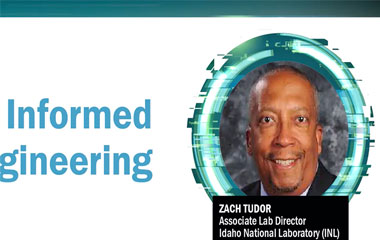
CISA Cybersecurity Summit 2021
Cyber Informed Engineering
October 27, 2021
Zach Tudor, Associate Lab Director, National and Homeland Security Idaho National Laboratory

Cyber-informed Engineering Perspective Needed for Cyber-defense
S&P Global Platts
February 1, 2021
Article by Ingrid Lexova

Stop Passing the Buck on Cybersecurity
By Jen Easterly and Eric Goldstein
DOE Press Release
The U.S. Department of Energy’s (DOE) National Cyber-Informed Engineering (CIE) Strategy Document
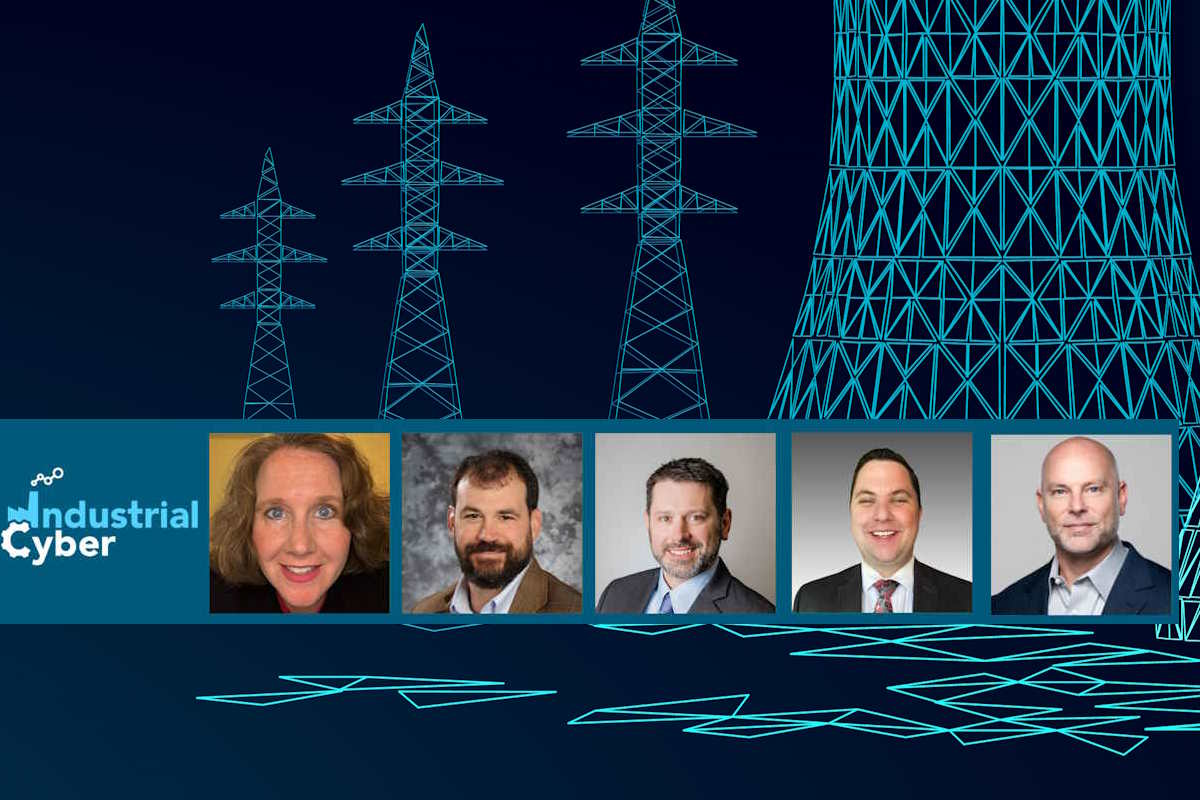
Meaningful strides possible with CIE and CCE methodologies across industrial cybersecurity landscape
CIE is the WHAT and CCE is a HOW
The Department of Energy (DOE) and INL have developed a framework to guide the application of cybersecurity principles across the engineering design lifecycle. The Cyber-Informed Engineering (CIE) framework and body of knowledge drives the inclusion of cybersecurity as a foundational element of risk management for engineering of functions aided by digital technology. Consequence-Driven Cyber-Informed Engineering (CCE) is a rigorous process for applying CIE’s core principles to a specific organization, facility, or mission by identifying their most critical functions, methods and means an adversary would likely use to manipulate or compromise them, and determining the most effective means of removing or mitigating those risks.
CIE emphasizes “engineering out” potential risk in key areas, as well as ensuring resiliency and response maturity within the design of the engineered system. The following CIE framework shows some of the key focus areas and how the relate to the CCE Methodology. CCE walks an organization through core components of CIE in CCE’s 4-phase process to evaluate and remove or mitigate weaknesses in their critical functions.
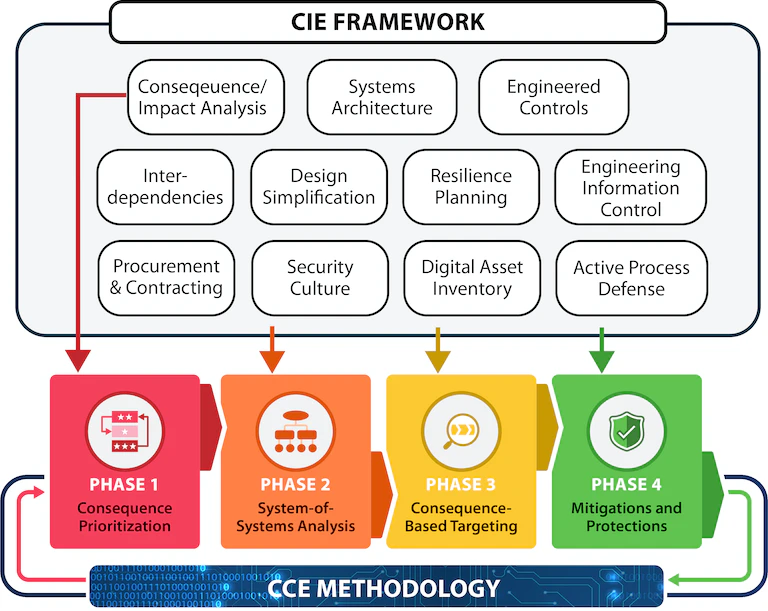
Auburn University hosts Energy Security: Cyber Informed Engineering
INL’s Zach Tudor and other industry leaders discussed this CIE strategy, why it matters and how you can help with implementation.
Fermilab Colloquium 2016
Cyber informed engineering (CIE) is a body of knowledge and methodologies to characterize and mitigate risks presented by the introduction of digital technology in this formerly analog environment, focused on the application of traditional engineering techniques informed by an awareness of cyber-security threat and mitigation methods. This talk will describe how managers and engineers can participate in mitigating cyber-security risk in engineering projects throughout the design and installation life cycle.
Resilience Week CIE Presentation
October 19-23, 2020
By Virginia Wright
Better Securing the Now and the Next: Applying Engineering Base Principles to Achieve Demonstrably Better Cybersecurity
Pesented by Andy Bochman and Virginia Wright
CIE – Domestic Nuclear Cyber
An introduction of CIE and how it pertains to nuclear energy and cybersecurity.
By Virginia Wright

